Andrew Breus (EMBA 2024) shares his own unique perspective on Cambridge Ecosystem: ESG Week. From uncovering the secrets of 20,000-year-old ice, to engaging with present-day innovations in oil-and-gas AI technologies, and peering into the future with visionary insights from Arm, the week was a vivid reminder that sustainability is a dynamic journey that spans the past, shapes the present, and defines the future.
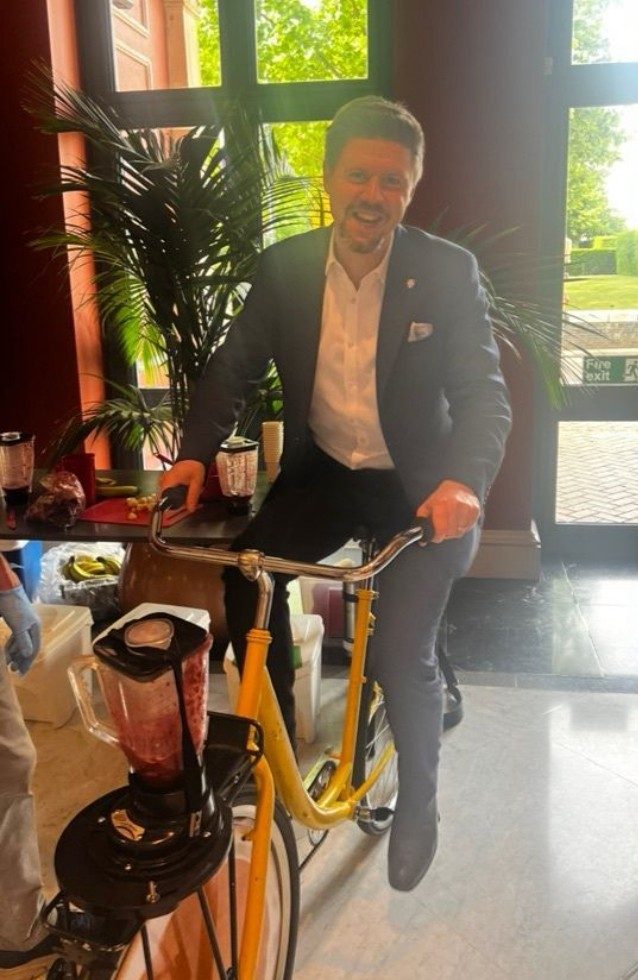
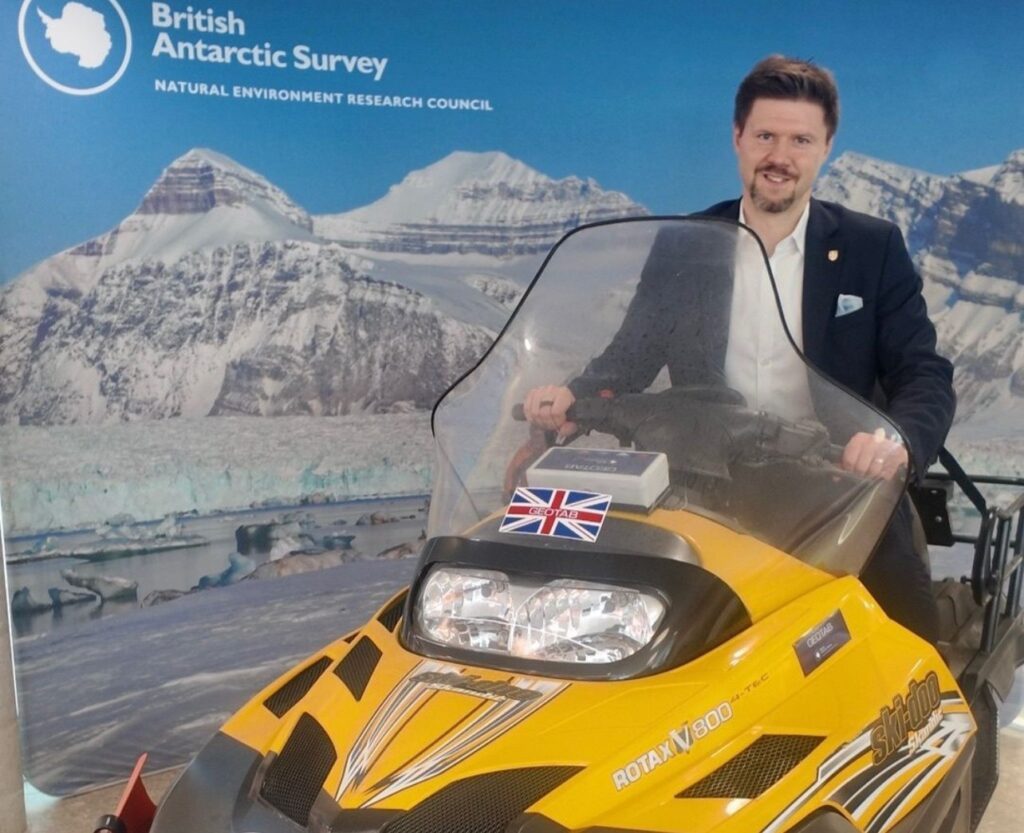
As some of you know, I wrote multiple posts on LinkedIn (join me and let’s connect!) around the EMBA programme and its various practical angles. I have been sharing my insights from lectures and guest visits with extensive coverage from the earlier International Business Study Trip to Brazil and life around Cambridge Colleges, including St Catherine College of which I am lucky to be part. In this EMBA blog, I would like to share my unforgettable experience during the 3-day Ecosystem ESG Week.
Cambridge Ecosystem Week
There was something unique when I first heard the words “intangible liabilities” in an ESG context, while holding in my hand a 20,000-year-old piece of ice that had been delivered directly from the Arctic. This was only a small part of my unique experience during Cambridge Judge’s immersive 3-day Ecosystem Week as part of the Executive MBA programme.
Coming from a financial and technology strategy background, this ESG experience was completely new for me and provided some new perspectives on the circular economy.
Finance, but with intangible liabilities
ESG week started with a challenging and, at the same time, brilliant statement by Professor Khal Soufani (Director of the Executive MBA programme) linking ESG to the real world of finance.
“On balance sheets, we account for intangible assets. But where are the intangible liabilities?”
I hadn’t thought about it like this before as, in finance, we always measure risk and quantify the exposure, but what about true capital like air, water or soil? Neither energy consumption nor soil destruction are reflected in balance sheet reporting.
The point that Professor Soufani was making was around a deeper problem – if we want to make our economy truly circular and more sustainable, then we need to transform the rules: consumption and waste must have measurable value.
ESG policies and sustainable business strategies
We had interactive lectures led by Professor Lucia Reisch (El-Erian Professor of Behavioural Economics and Policy) and Professor Cass Sunstein (Harvard Law School and former White House advisor under President Obama) who made compelling statements around the need to address ESG gaps that lead to negative business impact, including broken supply chains, reduced investor confidence and underdeveloped human capital.
Ice, air, and climate time machines
Next, we boarded a fully electric bus and travelled to the British Arctic Survey (BAS). We had an interactive discussion around the importance of climate change and how scientists in the Arctic learn more about the planet through exploring the nature of ice. The deeper the machines drill, the more humanity can learn about temperature change, carbon and atmosphere shifts over time.
I was surprised to hold a piece of ice that was over 20,000+ years old. I saw the trapped air bubbles and experienced how it was slowly warming in my hand. The researcher told us that the oldest piece of ice they were able to extract was 800,000+ years old. Can you imagine?
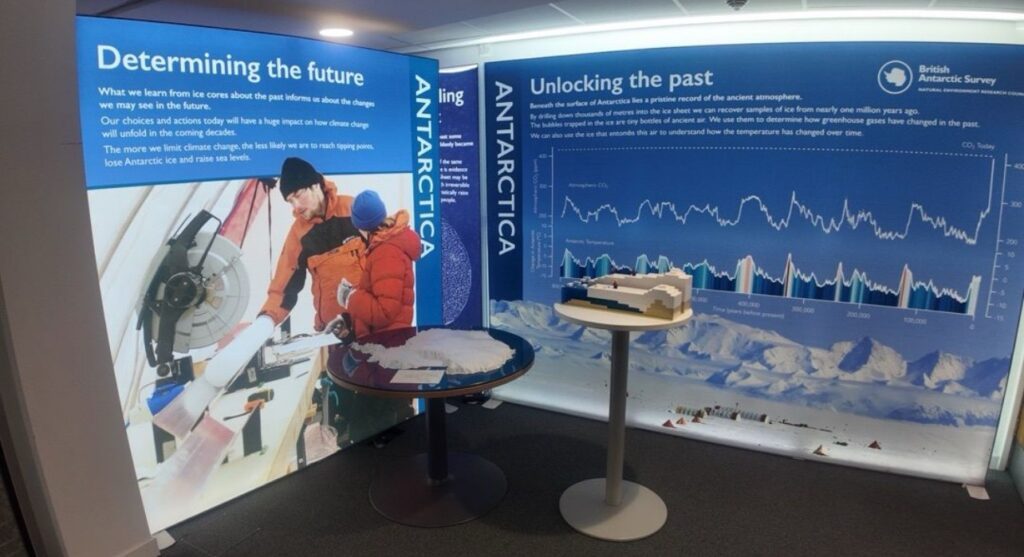
From oil to innovation
We then visited SLB (Schlumberger) Cambridge Research Centre where we learned how traditional oil-and-gas market leaders are advancing technology capabilities. They invest a lot in subsurface modelling, predictive analytics and AI-driven technologies. I was amazed at the extent to which technology can advance the process of oil extraction and make supply chains more efficient.
Later in the evening, I joined the talk by Ambassador Maulidah Hassan, a Tanzanian diplomat and policy advisor, who shared her perspective on why leadership isn’t just a title, but a big responsibility to others.
Tech with values
I had been looking forward to this visit for a long time and was really excited about visiting the famous Arm. It’s truly amazing that their design is embedded in almost every smartphone on the planet and they are at the heart of AI evolution. Imagine the company with £4bn annual turnover (FY25) and over 300bn+ chips worldwide.
What impressed me most was the speech by Paul Williamson, Senior Vice President and General Manager, IoT Line of Business, and Richard Buttrey, Director of Academic Programs, who shared a lot of insights around technology and how Arm’s AI strategy and tech are changing the AI universe.
The key takeaway was that AI decisioning is now embedded in every device and is no longer a “nice to have” but a mandatory, foundational architecture.
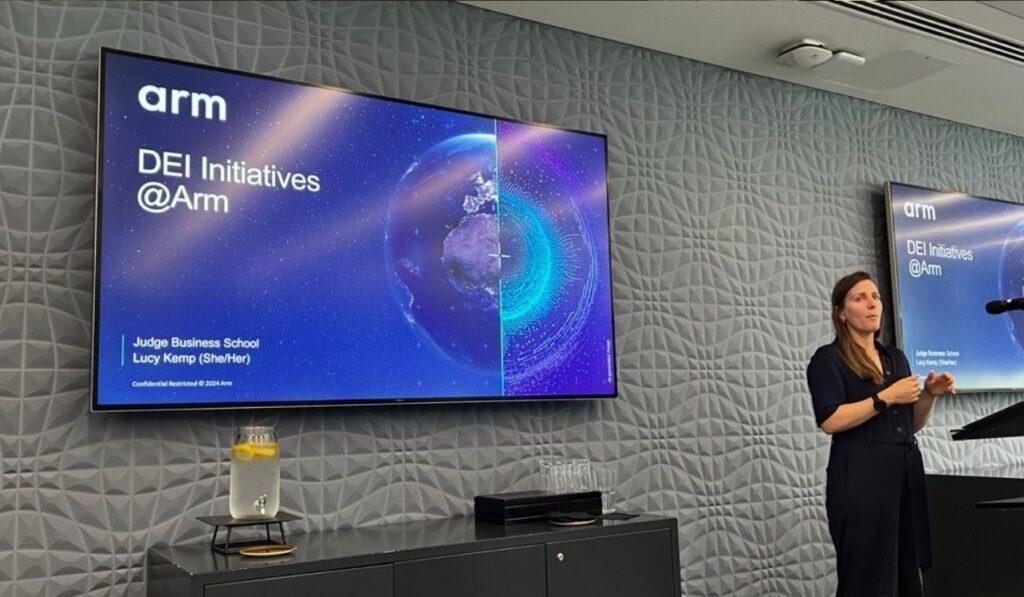
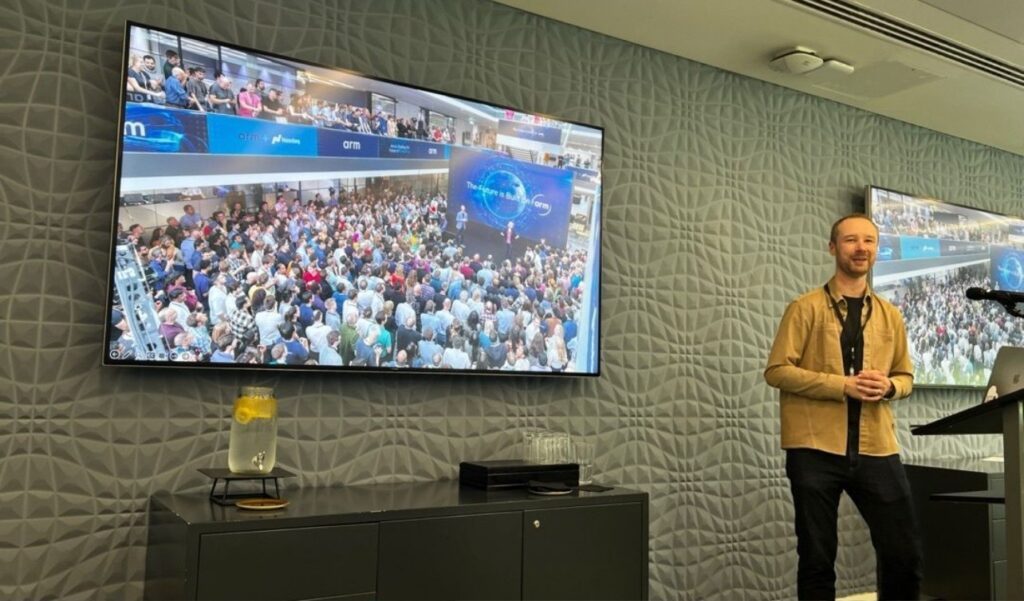
Porsche: rewiring a brand
In the evening, we went back to St Catherine’s College to hear from Dr. Benedikt Finkenauer (Head of Sustainability at Porsche, who is also ex-McKinsey). He talked about the importance of the right stakeholder alignment to be able to drive ESG strategy as this is really difficult without the right sponsorship support. He continued that it is critical to have measurable ESG metrics with a clear longer-term strategy in place to ensure it becomes tangible.
Healing beyond the hospital
Another guest speaker was Andrés Pérez, Executive Director of Sustainability at AstraZeneca, who talked us through how ESG can work in pharma. It was interesting to hear how granular AstraZeneca’s sustainability strategy is and how well it is integrated within its culture.
The final lap
I finished these 3 days with a dinner at St John’s College, hosted by my EMBA marketing teammate, Athan Fox. It was an amazing experience, full of incredible discussion and reflections around ESG Week.
A separate thanks to Outspoken Cycles for letting me “pedal my way to a smoothie” in between sessions – it was quite fun and a good cardio.
My closing reflections
ESG Week wasn’t about theory, it was about how we practically integrate ESG into our daily lives. We covered so much – from learning about ice that is 20,000 years old to exploring oil-and-gas AI technologies, and hearing about the future of technology from Arm.
Top 3 things I learnt:
- How to design sustainability strategy and make it measurable.
- Climate strategy has a huge business impact; how to help businesses transform it positively for the greater good.
- ESG is broader than you think and covers many areas (not just focused on environmental aspects) that are closely linked to many other areas of business, whether in relation to employees or company culture.
Insightful week and great experience. Thanks for reading!
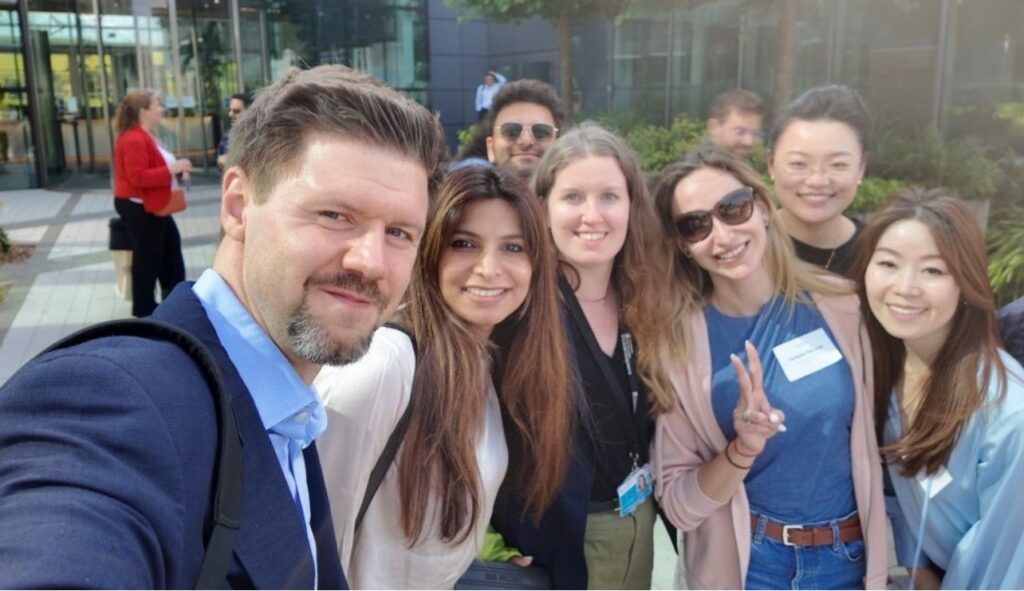



Leave a Reply